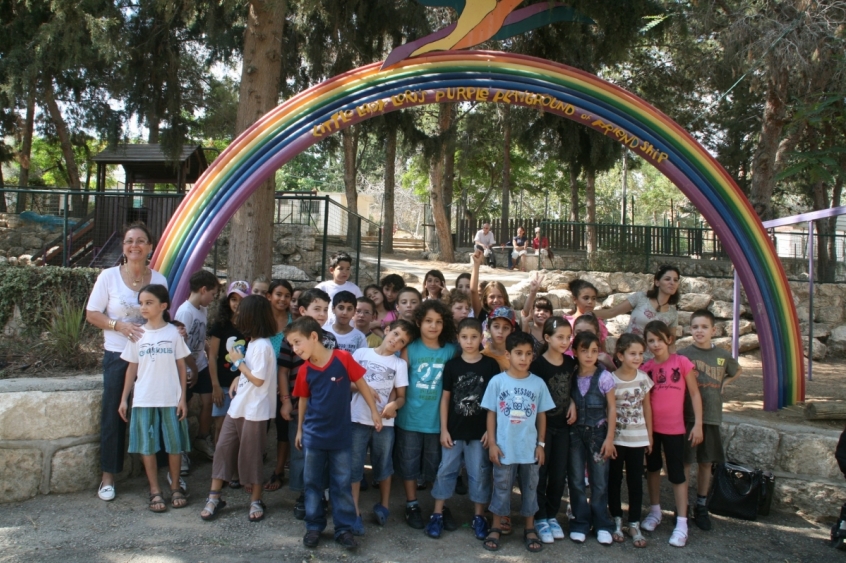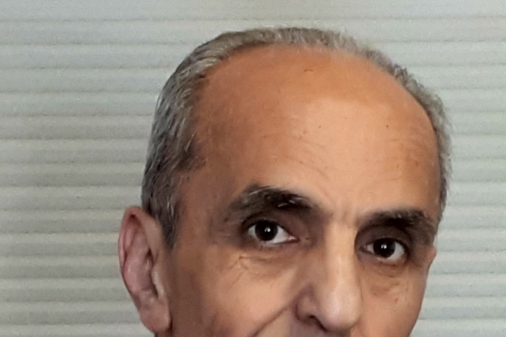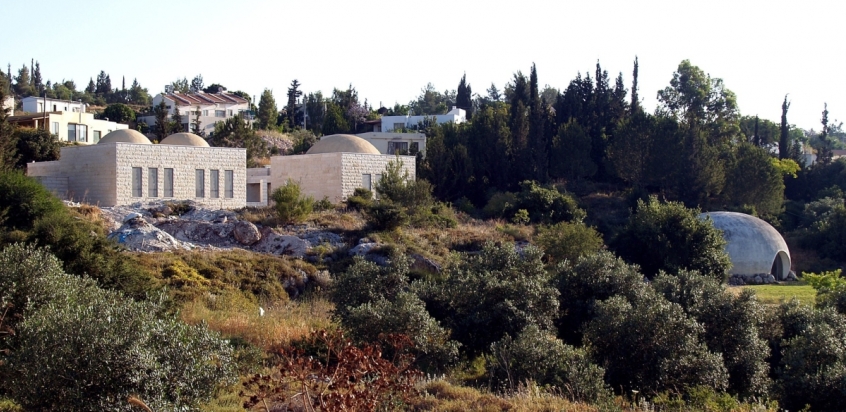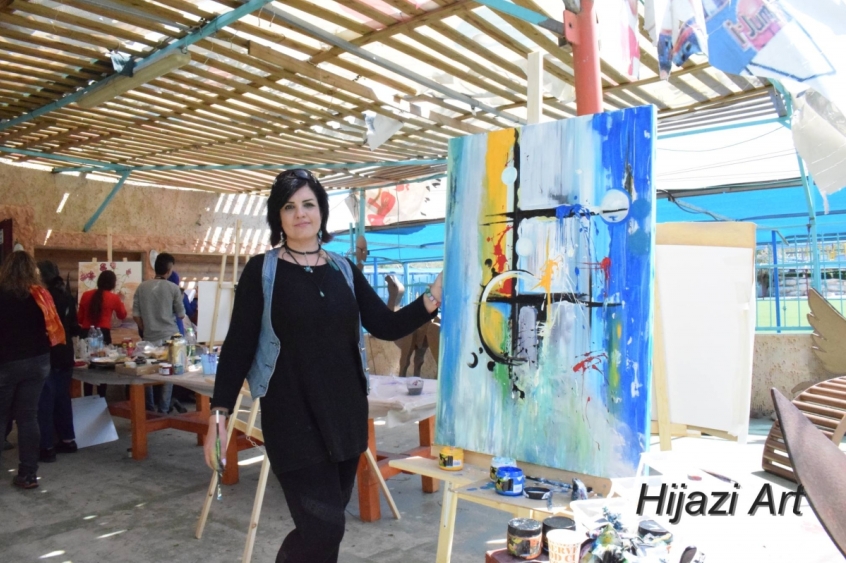
Rayek Rizek and his wife Dyana have lived in the Oasis of Peace, a groundbreaking community of Jews and Palestinians in Israel, since 1984.
The community, also called Wahat al-Salam and Neve Shalom, was founded by the late Father Bruno Hosar in 1970 and is dedicated to building justice, peace and equality not only in Israel but across the region.
Rizek's experience of life in the community and his unique insights into peace-building and reconciliation form the basis of his recent boo, The Anteater and The Jaguar.
He speaks to Christian Today about what he has learned about the nature of conflicts - and conflict resolution - and what hope there is for peace in the Holy Land.
CT: What was the founding vision of the Oasis of Peace?
Rayek: It was the idea of our late founder, Father Bruno Hosar, that the Oasis of Peace would be a home for Jewish and Palestinian families with a School for Peace, a primary school, a spiritual centre, art gallery and other institutions to give Jews and Palestinians the chance to meet together, study together and create together.
But it was also intended as a space where they could discuss the conflict from its different political, social, cultural and religious perspectives, with the hope of building bridges for reconciliation.
In that sense, Father Bruno wanted it to be a community where Jews, Christians and Muslims could live, work and bring up their children together. This was because he realized that personal contact between between Jews and Arabs was very rare even though they were living in such close proximity to each other.

Aside from that, Bruno was motivated by his convictions that we are all the sons of Abraham, whether we are Jews, Christians or Muslim, and that the only way beyond wars and violence for the people of this land was to accept each other as equals in spite of their differences.
He really was visionary in that he believed that the art of peace could also be taught to people, just as the art of wars had been taught in many universities and schools all over the world.
CT: What were you seeking to achieve in writing your book, The Anteater and the Jaguar?
Rayek: I wanted to present the story of the conflict in our land in a different way to the one-sided presentations that have been written by many others before. Instead, I wanted to present a narrative that went beyond the common arguments of who is right and who is wrong, or who is the aggressor and who is the victim.
My writing was based on my understanding that there is truth and untruth on every side, and that we are all victims in this conflict. And I wanted to write it very much with reconciliation in mind. That means:
Firstly, taking responsibility for our situation, as this is the only way that we can find the way out of a reality that we are not happy or satisfied with. That will be hard to achieve if we simply carry on putting the blame onto others, whether strangers or family members and whether the living or the dead.
Secondly, there is the need to forgive because only forgiveness can liberate us from anger and mental pain, something that with time inevitably turns into physical pain and also illness. Personally, it took time for me to understand that forgiving others for the hurt they caused me was not about doing them a favour, but more about doing myself a favour because this is how I can let go.
Thirdly, there is the need to liberate ourselves from the mindset of victimhood because this too is a source of so much mental pain, and this is so important in stopping us from victimizing others, not only strangers but also close family members.
One of the biggest lessons I have learned is that peace with ourselves is a precondition for succeeding in making peace with others - or at least avoiding conflicts with them.
CT: What has your time at the Oasis of Peace taught you about the nature of conflict?
Rayek: Through this experience, I learned that the psychological and social dynamics of conflicts do not differ very much whether the conflict is between two people, two groups or two nations. Nor does it matter where they are on this planet. It always boils down to the same arguments of who is right and who is wrong, and who started it first, whether that is recently or hundreds of years ago! We can always find ways to justify our anger, hatred and violence towards others.
I have also learned that anger, hatred and even violence are not confined to people from different cultures, political affiliations or religions. They also exist within these groups. How many civil wars have there been down through the history of humankind? How many people have been killed and victimized within the same religions, families or communities? But even though many people recognize these facts, they still insist on talking about 'us and them'.
The Oasis of Peace is unique in that it was born out of conflict but does not seek to airbrush over the complexities of this conflict or our differences, but find a productive way to reconcile them so that we can co-exist peacefully.

CT: How has being part of this community changed your view of the relationship between Jews and Palestinians?
Rayek: When I joined the community I was 28 and I thought that life here would be about us and them, Arabs and Jews. But like every other member, as soon as I started taking part in the discussions - be that political, financial, social or cultural - it was easy to realize right from the beginning that the differences of opinion are not necessarily between Jews and Palestinians, but between people who have different convictions and attitudes, and different levels of tolerance towards differences.
It was clear to me that we were connecting - or not connecting - with each other as people who had differences in our values and attitudes, and not because we were Jews or Palestinians. We were never divided by national lines but as mixed groups, regardless of the issues under discussion. This I believe has been the main reason for the continuity and growth of the community in spite of all the difficulties that we went through and in spite of the fact that many people from all sides have believed - or even wished - that the Oasis of Peace would not last very long.

CT: What do you think the Oasis of Peace has accomplished?
Rayek: All in all, we have through our life together, replaced ignorance and stereotypes with realistic and actual knowledge, learned to accept our responsibility instead of choosing the easy way out by putting all the blame on the other, and learned to forgive for the sake of a healthy mind and for a better neighbourhood.
But we have also helped each other to be liberated from victimhood. These changes were not the result of a pre-prepared plan, and they were not achieved overnight. They were the result of living together over many years, and our commitment and genuine sense of responsibility that this community should not fail. Because if it did, it would forever be a story about the failure of a small community of Jews and Palestinians, and perhaps cause many to believe that the conflict between our two peoples really is hopeless.
CT: What do you think the future holds for relations in the region?
Rayek: Whether in my work with the Oasis or my book or public speaking, I have never wanted people to take sides or even necessarily to change their position from one side to the other. All I have ever wanted them to understand is that at the end of the day, we are both victims of this conflict, regardless of how many people support this side or the other.
I tend to believe that it is part of our destiny to end up sharing the same land at this time in our human history, and I believe it is up to each person to decide how to help shape this destiny. I believe it is not by chance that we ended up together, not only as members of two nationalities but also as followers of the three monotheistic religions, the sons and daughters of Abraham and of Sara and Hagar.
It is true that the conflict has a very strong political aspect, but I believe it has an equally powerful religious side to it. Surely, since Jews, Christians, and Muslims alike believe in the God who will one day judge the world, we can all agree that it is the condition of the human heart that God will be concerned with on the day of Judgement - regardless of our different affiliations.
In simple terms, our choice is between letting the ambiguous past continue to control our thinking and our attitudes, or choosing to view this past as a valuable lesson in what is possible and ethical, and what is not. We must, all of us, realize that we will always reap what we sow.
So, I believe our shared destiny will evolve in one of two ways: either we will remain together in this darkness of pain, or we will choose to reconcile and build a new shared reality that might help awaken all the people on this planet to our common humanity. This is what we have been doing as best we can at the Oasis of Peace/Neve Shalom/Wahat Assalam.













